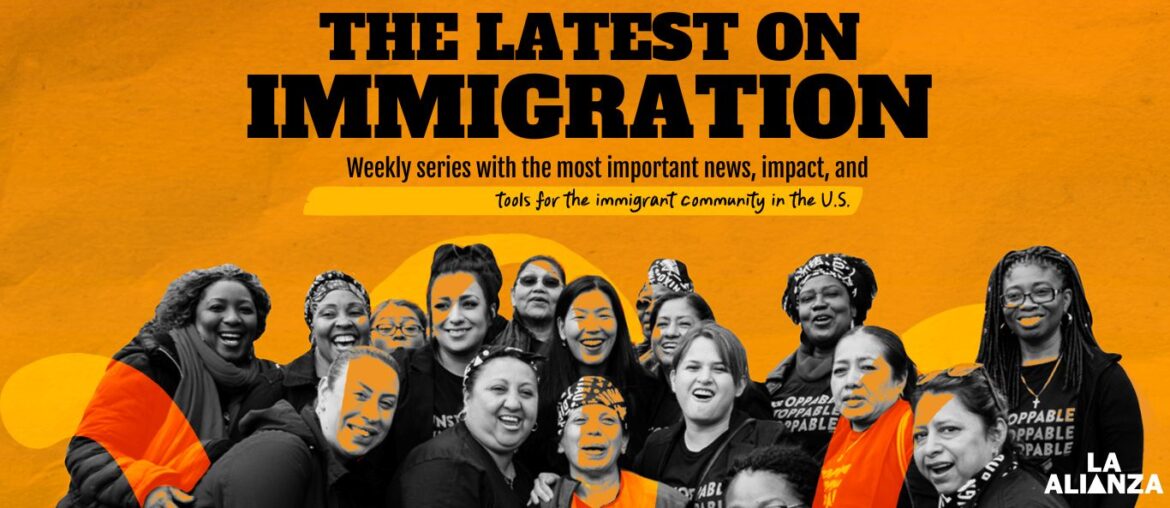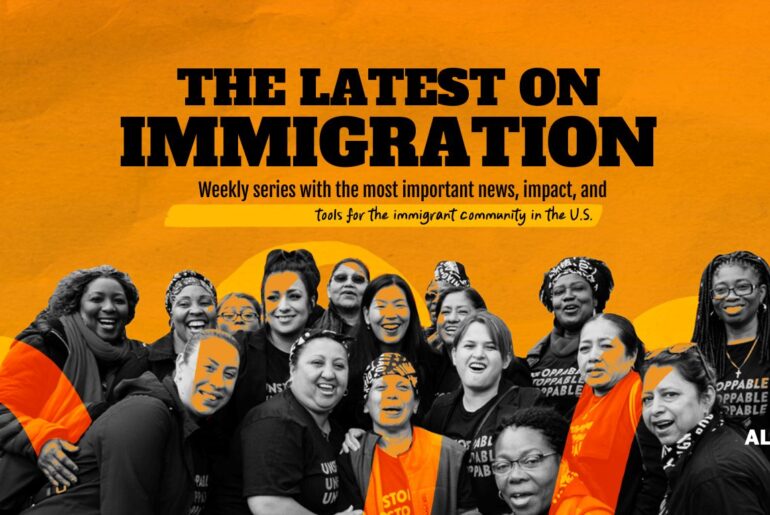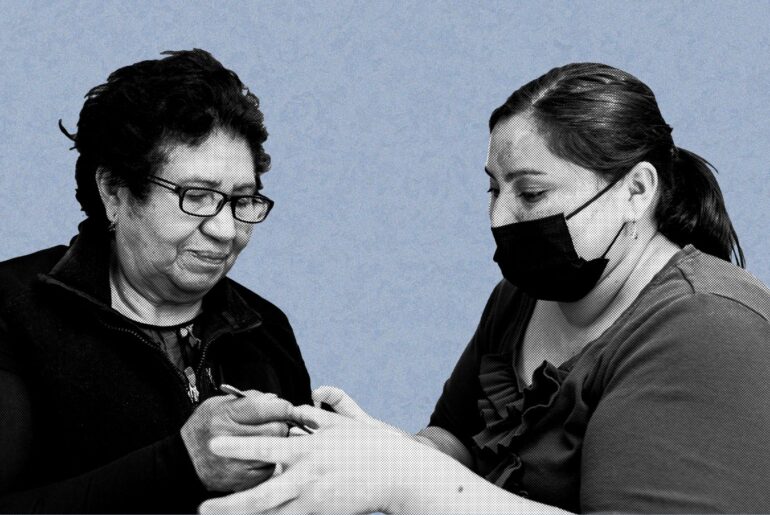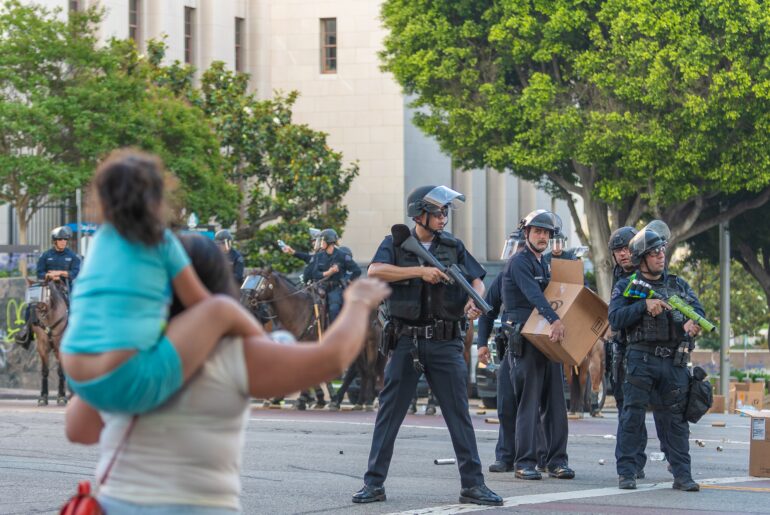Over the past two weeks, measures directly affecting migrant communities have been intensified. The federal takeover of Washington, D.C., has forced local police to collaborate with ICE and has generated fear in entire neighborhoods; a Ninth Circuit ruling allows TPS to be terminated for people from Nepal, Honduras, and Nicaragua; and new USCIS guidelines mandate reviewing social media for “anti-American ideology” and expanding the criteria for “good moral character” for those seeking to become U.S. citizens.
Latest News
Federal takeover of Washington, D.C.
- What we know: On August 11, the federal government imposed a 30-day takeover of police control in Washington, D.C., and deployed the National Guard (including troops sent by several states). In addition to the operations, the Metropolitan Police Department (MPD) has been ordered to share data and collaborate with immigration agents, ICE, at checkpoints, raids, and verification of delivery drivers, reversing the District’s “sanctuary” policies during the takeover period. This presence is compounded by agents from other federal agencies, such as the FBI, which shows the magnitude of the deployment of officials in the city at this time.
- Why it matters: The measure enables forced cooperation between local police and immigration authorities in the capital, creating a chilling effect in neighborhoods with a high immigrant presence and normalizing the use of local resources for detention and deportation. To date, approximately 1,000 arrests have been made. In addition, immigration experts have reported that the presence of these officials has had an impact on neighborhoods where people are afraid to go to restaurants, concerts, or their own jobs.
- Who it affects: The American Immigration Council estimates that approximately 1.5 million immigrants live in the DC metropolitan area.
End of TPS for Nepal, Honduras, and Nicaragua
- What we know: A panel of the Ninth Circuit granted a stay of a district court order that kept TPS in effect for Nepal, Honduras, and Nicaragua. As a result, people from Nepal would immediately lose their protection, while people from Honduras and Nicaragua would lose it starting Monday, September 8. The panel’s decision came without a detailed explanation.
- Why it matters: Thousands of people who have been living and working in the United States under this protection will be at risk of detention and deportation, with severe impacts on families with citizen children and entire communities.
- Who it affects: Approximately 60,000 people with TPS from these three countries and tens of thousands of U.S. citizen children who are the sons and daughters of those same TPS holders.
USCIS intensifies scrutiny for “anti-American ideology” in visa and residency applications
- What we know: USCIS has indicated that it will give greater weight to evidence of “anti-American ideologies” (including social media reviews) when evaluating visas, permits, and permanent residency (Green Cards). The guidance refers to historical prohibitions (e.g., membership in certain groups) but does not clearly define what speech will be considered “anti-American.”
- Why it matters: The use of broad and ambiguous concepts can lead to arbitrariness, rejections, and delays in legal proceedings, affecting students, domestic workers, and families seeking to regularize their immigration status. In addition, activists warn that this new scrutiny could restrict freedom of expression.
- Who it affects: Visa applicants (study, tourism, or work), people in the process of changing their status, or other immigration procedures.
USCIS expands the standard of “good moral character” for becoming a U.S. citizen
- What we know: A USCIS memo instructs officials to adopt a more “holistic” assessment of good moral character in naturalization, weighing both negative behaviors and “attributes or contributions” (volunteering, employment, tax payment, among others). It also tightens criteria, for example, by requiring full payment of back taxes (not just a payment plan) and allowing citizenship to be denied for patterns such as multiple traffic violations.
- Why it matters: It increases uncertainty about what evidence is sufficient to demonstrate merit and may increase the documentary burden for applicants with low incomes, informal work, or caregiving responsibilities.
- Who it affects: People eligible to become U.S. citizens.
Local and Developing News
- Florida: “Alligator Alcatraz” will have to close temporarily. After a lawsuit filed by the Miccosukee Indian tribe alongside environmental groups, a judge ordered the suspension of operations at the detention center in the Everglades due to a lack of environmental review.
- Nebraska: The creation of a new immigration detention center called “Cornhusker Clink” located at the Work Ethic Camp in McCook was announced. This will involve the relocation of people currently there and allow for the prolonged detention of immigrants. The measure has been questioned by civil rights organizations.
- Chicago: Tension is growing over possible federal deployments and the authorization of local military bases for logistical support. In addition, Homeland Security Secretary Kristi Noem confirmed a plan to expand ICE operations in major cities, including Chicago, while Mayor Brandon Johnson maintains his refusal to cooperate with federal agents.
- Use of military facilities as detention centers. The Trump administration announced plans to use the McGuire-Dix-Lakehurst military base in New Jersey to detain people awaiting deportation, drawing criticism from activists who warn of the risks of using military spaces for civilian immigration purposes. In addition, Texas plans to open “Lone Star Lockup,” which could become the largest federal immigration detention center in the country.
- TPS for Venezuelans: The Court of Appeals temporarily halted the attempt to end protections for 600,000 Venezuelans who have permission to live and work in the United States under TPS.
Resources
- Visit the National Domestic Workers Alliance’s “Know Your Rights” platform, which includes immigrant rights, immigration options, a legal aid directory, and more. To access it, visit ndwa.us/immigrant
Note: The National Domestic Workers Alliance is the partner organization of La Alianza - Learn how to recognize fake news about immigration and avoid misinformation with this guide: How to Identify Fake News About Immigration and Avoid Misinformation
Legal Disclaimer: This information is provided for educational purposes and does not constitute legal advice. It is recommended that you consult with an immigration attorney to assess your specific situation.





